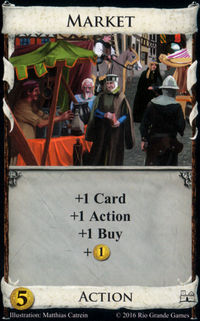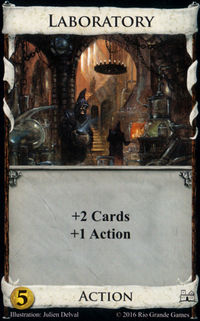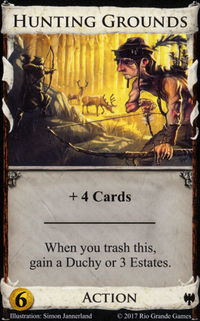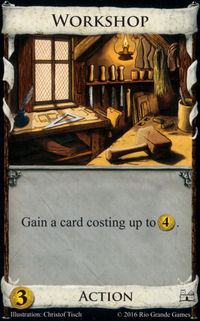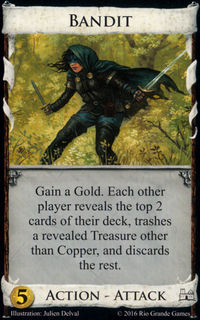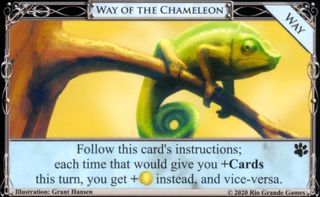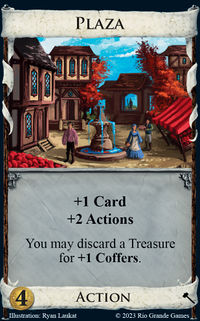Overdraw
A deck with overdraw is one which can draw itself and still have the ability to draw more cards. This sounds inefficient, but in fact having a small amount of overdraw is almost always a good idea when you are trying to reliably draw your deck in an engine.
To see why this is the case, imagine that your deck consists of four stop cards, such as Gold, and many Markets. In the worst case scenario, your starting hand will be four Golds and a Market, but you will still be guaranteed to draw your entire deck: every Market will draw another Market until your final Market (which will not draw a card, since you have none left). But now imagine that you instead have five Golds. Now the worst case scenario is a starting hand of five Golds, which will be unable to play any Markets. More generally, if the bottom card of your deck is a Gold, you will be able to play all your cards: If not, you will be forced to leave one or more Markets stranded. If one of your Markets were a Laboratory instead, restoring your overdraw, there would be fewer scenarios in which you would fail to draw.
In more complicated decks, the effect of overdraw can be harder to compute, but in general, overdraw will dramatically increase the reliability of your deck, ensuring that you can play all your cards. The optimal amount of overdraw is likely to be higher if your draw is concentrated in fewer individual cards. For example, if you are drawing with Hunting Grounds, there is a significant chance of leaving some cards unplayed in your deck even with a substantial amount of overdraw, because you could easily bottomdeck a couple of Hunting Grounds along with a number of your valuable payload cards which provide additional and gains. Overdraw will increase your reliability, but this benefit must be weighed against the opportunity cost of gaining more draw cards at the expense of more payload.
Numerous cards are boosted in power by overdraw. In particular, overdraw often enables gain-and-play tactics, in which you draw your deck, play a gainer such as Workshop or Bandit, draw the card you just gained, and play it, all on the same turn. This can be incredibly explosive, because payload cards that you gain at the end of your turn can’t interfere with your ability to draw your deck that turn. A common strategy is to gain-and-play payload cards and use the resulting extra to buy additional draw so that you can gain-and-play again on your next turn, ramping up your deck’s capabilities quickly. Other synergies with overdraw include Way of the Chameleon and Plaza, which allow you to turn overdraw into .

